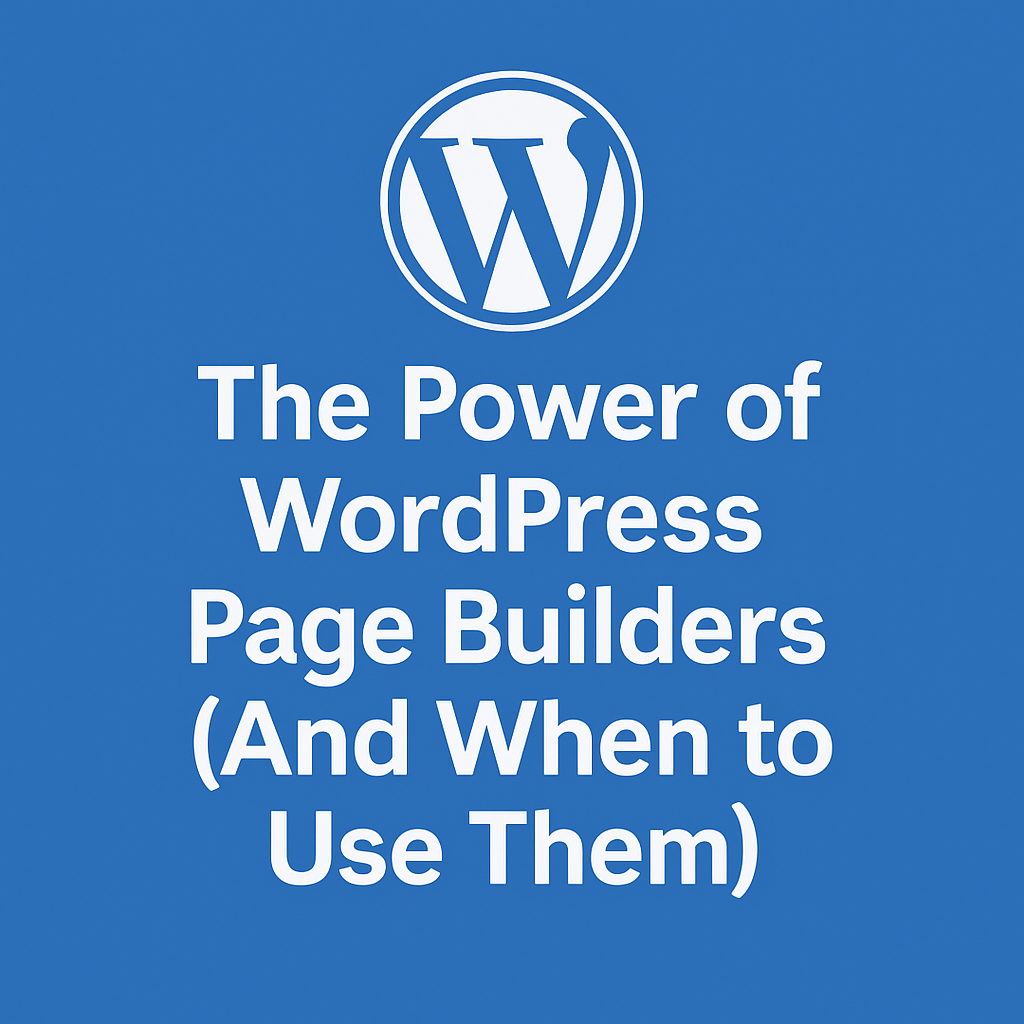When it comes to creating a WordPress website, you have two main options: write code from scratch or use a page builder to design and publish content visually. For most businesses, page builders are the empowering choice – they let you build pages by dragging and dropping elements, no coding required, making you feel capable and in control of your website’s design.
At Ezyweb Australia, we work with page builders every day, helping clients get the look and functionality they want without making their website slow or difficult to manage. But page builders aren’t a one-size-fits-all solution. Let’s look at what they offer, and when they make the most sense.
What Is a WordPress Page Builder?
A page builder is a tool that lets you design and customise web pages visually inside WordPress. Instead of editing code, you can add text, images, buttons, forms, and other elements simply by placing them where you want.
Two of the most popular options are:
- Elementor – A highly flexible, feature-rich builder with a drag-and-drop interface.
- Gutenberg – WordPress’s built-in block editor, designed for clean, fast layouts without extra plugins.
The Benefits of Using a Page Builder
1. Speed of Design
yes
Page builders make it possible to go from idea to finished page in hours, not days. This efficiency is ideal if you need to launch quickly, making you feel productive and on top of your website’s design.
2. Visual Editing
You see your changes as you make them, which makes it easier to get the layout and design right. This visual editing feature instills confidence in your design choices, ensuring you’re satisfied with the final look of your website.
3. Flexibility Without Coding
You can create custom layouts, adjust spacing, and add features without needing a developer every time you make a change.
Elementor vs Gutenberg: Which Should You Use?
Elementor
- Best for: complex layouts, advanced design control, and sites that need unique branding.
- Pros: hundreds of widgets, design flexibility, integration with many plugins.
- Cons: can add extra weight to your site if not optimised properly.
Gutenberg
- Best for: simpler websites, blogs, and content-focused pages.
- Pros: built into WordPress, lightweight, fast, suitable for SEO.
- Cons: fewer design options compared to Elementor, may require more creativity to achieve specific layouts.
When Page Builders Make Sense (And When They Don’t)
Use a page builder when:
- You need complete creative control over your site’s design.
- You want to make changes without a developer.
- Your site needs landing pages, marketing pages, or visual layouts.
Avoid a page builder when:
- You have a simple blog or text-based site that works well with the default WordPress editor.
- Website speed is your top priority, and you don’t need advanced design features.
- You’re building a site that will be heavily customised by developers.
Getting the Best of Both Worlds
At Ezyweb Australia, we often combine approaches. For some clients, we use Gutenberg for blog posts and standard content, and Elementor for more visual, conversion-focused pages. This way, you get fast loading times for regular content while still having the flexibility to create standout designs when needed.
Bottom line: WordPress page builders can be a powerful tool – if you choose the right one for your needs. The trick is knowing when to use them and how to keep your site fast, secure, and easy to update.
If you’re deciding between Elementor vs Gutenberg, or wondering whether a page builder is the right fit for your site, get in touch with Ezyweb Australia. We’ll guide you toward the option that works best for your goals.
Frequently Asked Questions – WordPress Page Builders
1. What is a WordPress page builder?
A WordPress page builder is a tool that lets you design pages visually without coding. You can add and arrange elements like text, images, and buttons directly on the page.
2. Is Elementor better than Gutenberg?
It depends on your needs. Elementor offers more design flexibility and features, while Gutenberg is lightweight, fast, and built into WordPress.
3. Do page builders slow down WordPress?
Some can, especially if you add many widgets or animations. Choosing the right builder and optimising your site can minimise speed issues.
4. Can I use both Elementor and Gutenberg?
Yes. Many site owners use Gutenberg for blog posts and basic content, and Elementor for more complex or marketing-focused pages.
5. Which page builder is best for SEO?
Both can be SEO-friendly if used correctly. Gutenberg has a slight edge on speed, which can help rankings, while Elementor offers more control over layout and on-page elements.
